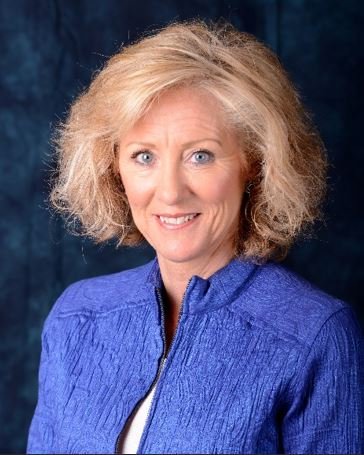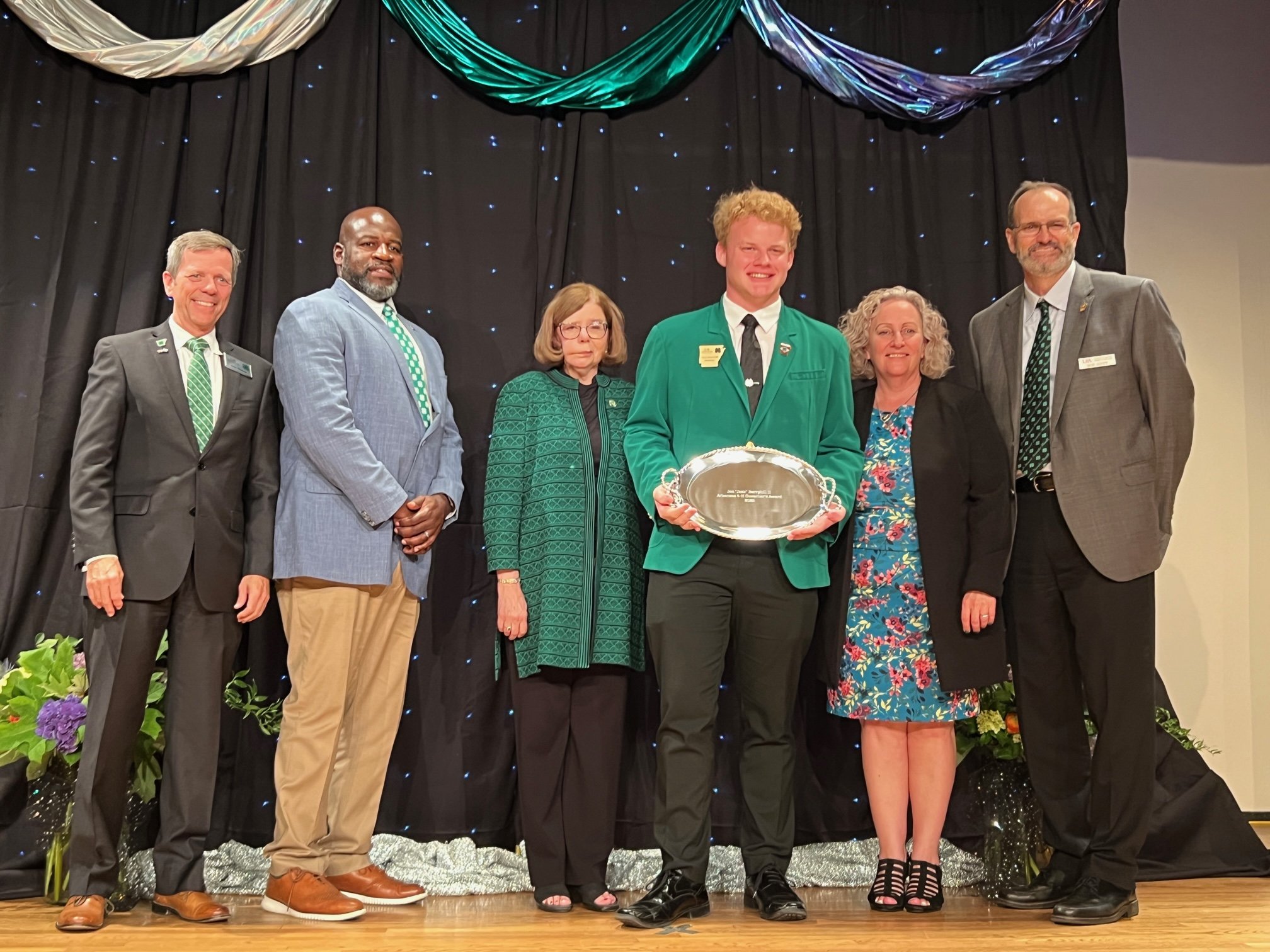“He’s done an especially amazing job at finding good homes for the Division of Agriculture’s inventions,” said Lisa Childs, a Division of Agriculture vice president and head of the Technology Commercialization Office.
Renk was also good at “helping us and the researchers we support to think about the downstream impacts of our decisions,” Childs said. “We are a better, more professional team as a result of his time with us.
“I was so excited about Bryan joining us eight years ago because of the breadth and depth of his relevant experience,” Childs said. “I have to say that he’s surpassed all my expectations.”
Renk retired in June.
Propelling growth
Renk called his work with the Division of Agriculture’s world-renowned fruit breeder John Clark “both significant and satisfying,” but said it had something of an uncertain start.
When Renk first came to Arkansas, he thought he could use his experience to advise the Division of Agriculture on intellectual property.
“Then Clark dropped off a paper he wrote on intellectual property. It was more recent than the one I’d written,” Renk said with a laugh. Then, he thought, “Maybe I’ll help with marketing. Then searching around, I found the most recent marketing study was one Clark co-authored as well.”
At the time Renk thought, “I guess I’m not going to help him at all.”
Clark “had strengths I didn’t and vice versa. We meshed really well and it turned out to be a good friendship,” Renk said. “At the end of the day, the fruit program has more income now than it had before and is in a nice position to improve” with Clark’s successor, Margaret Worthington.
Renk said he enjoyed his faculty interactions at Arkansas but would especially miss his co-workers in the Technology Commercialization Office.
Renk’s efforts have made a large impact on the results of Arkansas Agricultural Experiment Station’s world-class fruit breeding program, said Jean-François Meullenet, who heads the experiment station, which is the research arm of the Division of Agriculture.
“Bryan’s professionalism and focus on cultivating strong relationships with our partners have driven the remarkable growth of our technology transfer program over the last eight years,” Meullenet said. “Bryan’s efforts propelled our fruit licensing program to new heights. All of us with the experiment station wish Bryan the best in this next chapter of his life.”
Badger fan in Razorback land
Parker Cole, associate director of technology commercialization, spent the last year working closely with Renk.
“Bryan Renk is a phenomenal guy – despite his love for the Wisconsin Badgers!” Cole said. “Stepping into my new role was somewhat nerve-racking but Bryan has served as a sounding board and has continuously encouraged me along the way.
“Having had the opportunity to work with Bryan for the past year is something I will cherish for my entire career,” Cole said. “I hope to carry on his legacy and build on the work he has done for the Division of Agriculture.”
Renk, who earned his undergraduate and master’s degrees in meat and animal science and muscle biology from the University of Wisconsin-Madison, also fenced for the school, advancing to the 1984 Olympic trials in saber. He admitted to maybe “needling Cole a little bit” about team loyalties.
Renk joined the commercialization office in 2015, where he was responsible for assessing technology, patenting, licensing and marketing. Renk is an emeritus member of the Board of Visitors for the College of Agricultural and Life Sciences at University of Wisconsin at Madison.
He also sits on the board of directors for Maple Leaf Farms, the largest vertically integrated duck producer in the United States. He was formerly the executive director of BioForward, a member-driven state trade association that represents Wisconsin’s life science industry. He has also served as president and chief executive officer of aOvaTechnologies, an ag-biotech startup company, and has held positions as director of licensing and director of patents and licensing at the Wisconsin Alumni Research Foundation. He has also served as a board member for William F. Renk and Sons and FluGen.
The future
As for the future, family looms large. He and his wife, Mary, have three sons: Zachary, Jonathan and Lewis. Although retirement plans include some consulting work, and staying on the board at Maple Leaf Farms, Renk’s first grandchild is expected in November and he said he is “getting ready for that. “And our third boy has gotten engaged last month.
“We will be in their hair a little more than they want us to be,” Renk said.
There will also be travel. Renk said he’s looking forward to seeing how some of the licensing agreements he put into place about herbicide tolerance and resistance and animal probiotics work out.
“You never know what will happen,” he said. “It takes seven to 10 years to prove me or the invention right or wrong.”
To learn about extension programs in Arkansas, contact your local Cooperative Extension Service agent or visit www.uaex.uada.edu. Follow us on Twitter and Instagram at @AR_Extension. To learn more about Division of Agriculture research, visit the Arkansas Agricultural Experiment Station website: https://aaes.uada.edu/. Follow us on Twitter at @ArkAgResearch. To learn more about the Division of Agriculture, visit https://uada.edu/. Follow us on Twitter at @AgInArk.






















